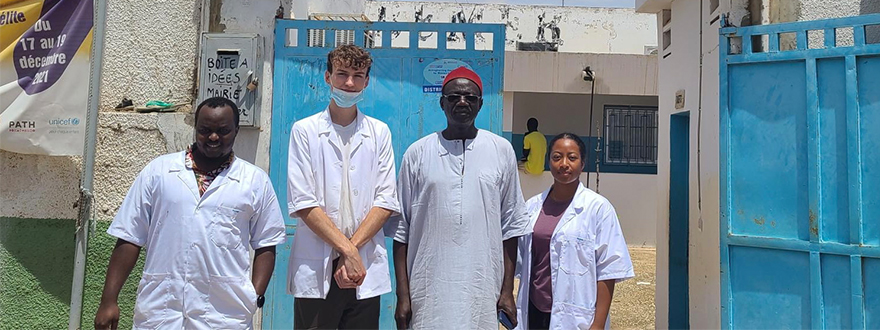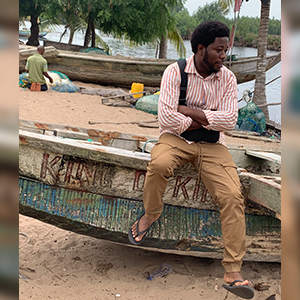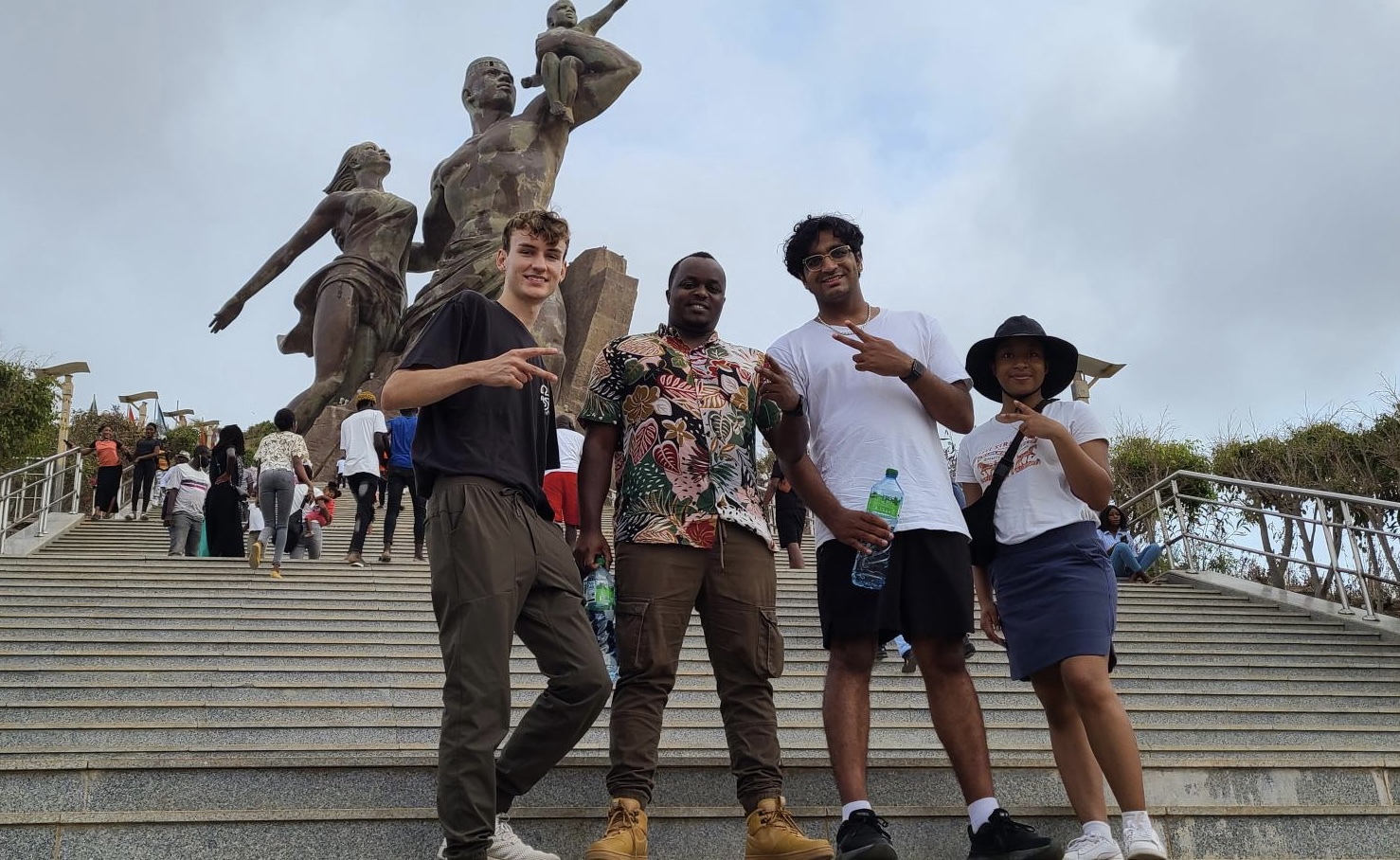Empowering careers through an immersive African experience
 Graham Kerr Gould (second from left), and fellow participants in front of a medical facility in Senegal.
Graham Kerr Gould (second from left), and fellow participants in front of a medical facility in Senegal.
By Cam Buchan
As Shubh Borad looks ahead to the next stage in his career, the fifth-year honours health science student in the Faculty of Health Sciences will definitely include travel in those plans.
As a participant in the Global Skills Opportunity (GSO), one of two programs presented by the Africa Institute at Schulich School of Medicine & Dentistry, Borad has always been an adventurous spirit. A spirit that made the program a perfect fit. The Institute also offers the Queen Elizabeth Scholars (QES) program for students and researchers.
“Obviously, one of the biggest attractions was the opportunity to travel to Africa, and experience and explore the culture there,” said Borad, who spent seven weeks in Dakar, the capital of Senegal. “It also gave me a close-up look at the health-care system there and compare and contrast their system with what we have here.”
Borad spent his days interacting with doctors and nurses in the School’s affiliate hospitals – in departments ranging from pediatrics, and psychology to psychiatry and geriatrics. Along with other students in the program, Borad also spent his free time exploring the culture and city.
“The program provided a valuable experience in developing a global perspective on health care, as well as providing a great travel experience,” said Borad.
 Senanu Kutor studied climate change impact as a QES scholar in the coastal town of Fuveme, New-Town in Ghana.
Senanu Kutor studied climate change impact as a QES scholar in the coastal town of Fuveme, New-Town in Ghana.
Learning to listen
Graham Kerr Gould, a third-year student also in Health Sciences, took his interest in Equity, Diversity, and Inclusion to Dakar, Senegal, for seven weeks as part of the GSO program. Like Borad, Gould did rotations through different areas of the hospitals there.
These observations gave Gould a more empathetic view of the conflicts patients from different cultures often face in obtaining care.
“I learned how important it is to listen to what patients are saying,” said Gould, who is considering a career in global public health. “It’s important to realize people put their trust in different places, so for any program or initiative to succeed, there needs to be an appreciation of diverse perspectives.”
Lessons from the real world
Senanu Kutor, PhD candidate, Geography and Environment, spent time in Ghana as a QES scholar and came away with a deep desire to make a difference in the lives of people ravaged by climate change there.
“The purpose of the experience was to engage with communities at the local level through scholarly engagement and shaping policy direction on climate change, coastal flooding and mobility in Africa and in other parts of the world,” said Kutor.
The two months spent travelling the country left a lasting impact on Kutor.
“I want my future research activities to have real implications for policy. It is only when our research influences policy positively that the world will be a better place for all,” said Kutor.
 Graham Kerr Gould (left) and Shubh Borad (third from left) and fellow participants in front of African
Graham Kerr Gould (left) and Shubh Borad (third from left) and fellow participants in front of African
Renaissance Monument in Senegal.
Empowering careers
The two programs are ways Western students, particularly students from Schulich School of Medicine & Dentistry, can broaden their perspectives and ultimately grow into global citizens.
“For example, the QES program focuses on climate change, which is all about how the environment impacts human health. In Africa, we are seeing new and re-emerging diseases such as polio, that are associated with contaminated water sources and poor sewage systems due to flooding; and, measles, associated with drought, malnutrition and low vaccination rates as a result of climate change,” said Melanie Katsivo, associate director of the Africa Institute, and organizer of the programs. “It is a great opportunity for Schulich students to focus their research on Africa and find out what is happening there.”
Through the GSO program, participants will gain a global view of EDI issues in experiences that will give them a valuable cultural understanding when interacting with patients from different backgrounds, she said.
Key to both programs is the impact each will have on future careers.
“Our students will become global citizens who are empowered to determine the direction they would like to take their own personal careers.”
Contact Melanie Katsivo (mkatsivo@uwo.ca) for more information on applying for the GSO program or becoming a QES Scholar.









